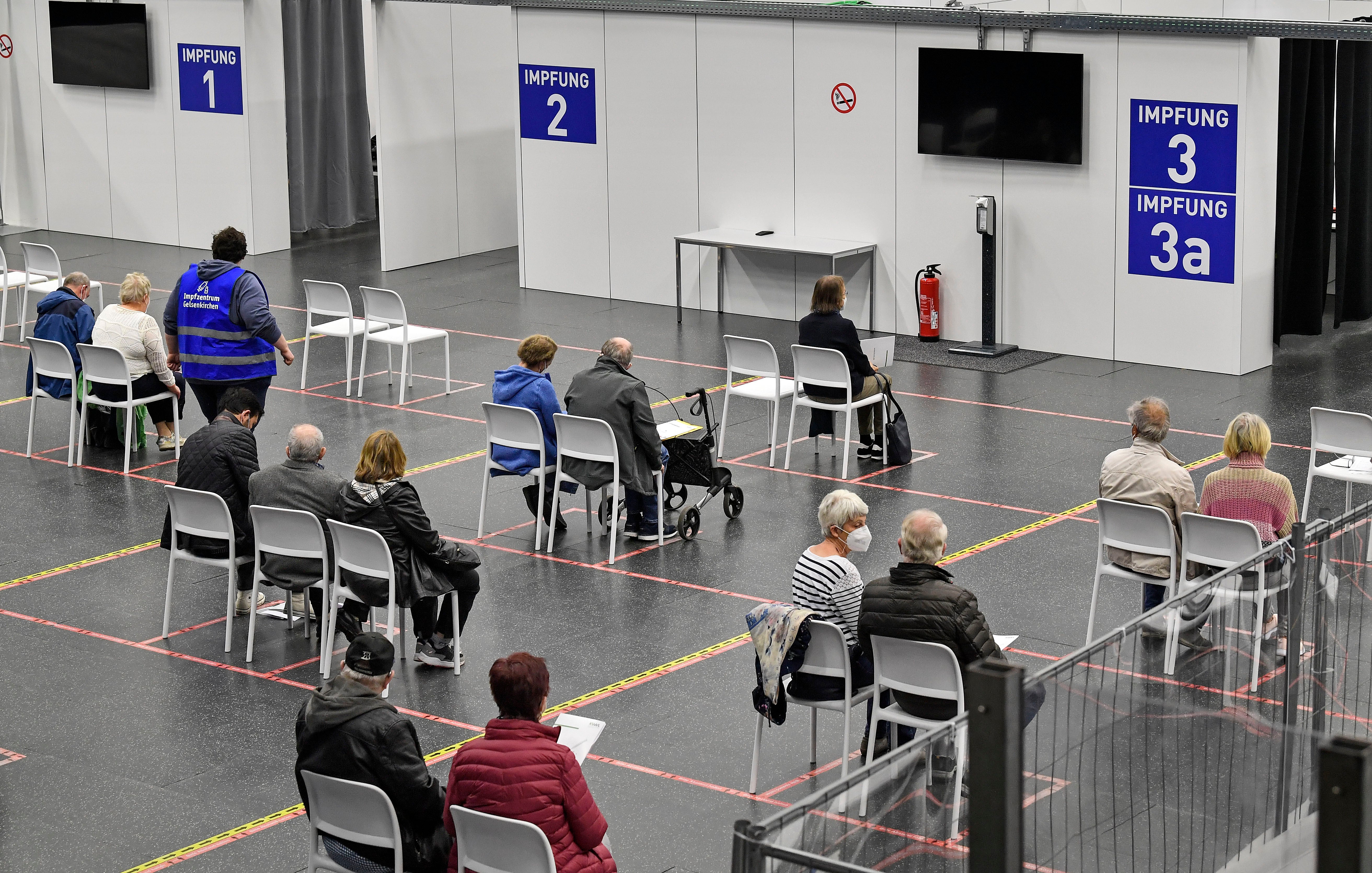Germany debates privileges for those who've been vaccinated
Chancellor Angela Merkel and the governors of Germany’s 16 states are discussing whether people who have been fully vaccinated against COVID-19 should be exempt from certain restrictions put in place to curb the spread of the coronavirus

Your support helps us to tell the story
From reproductive rights to climate change to Big Tech, The Independent is on the ground when the story is developing. Whether it's investigating the financials of Elon Musk's pro-Trump PAC or producing our latest documentary, 'The A Word', which shines a light on the American women fighting for reproductive rights, we know how important it is to parse out the facts from the messaging.
At such a critical moment in US history, we need reporters on the ground. Your donation allows us to keep sending journalists to speak to both sides of the story.
The Independent is trusted by Americans across the entire political spectrum. And unlike many other quality news outlets, we choose not to lock Americans out of our reporting and analysis with paywalls. We believe quality journalism should be available to everyone, paid for by those who can afford it.
Your support makes all the difference.Chancellor Angela Merkel and the governors of Germany s 16 states on Monday discussed whether people who have been fully vaccinated against COVID-19 should be exempt from certain restrictions put in place to curb the spread of the virus.
The issue of special privileges for vaccinated people has been hotly debated in Germany, as in other countries.
Some have argued it's unfair on those who haven't been able to get the shot yet. Others say restrictions on civil liberties are justified while people pose a risk to others.
Scientists say that while vaccines significantly reduce the risk of serious illness, it isn't clear yet whether people who've been immunized can still spread the virus.
The head of Merkel's conservative Christian Democrats said he wants swift clarity on the issue of privileges for vaccinated people and those who've recovered from a COVID-19 infection.
“This needs to be settled today in a binding way,” Armin Laschet said. The governor of North Rhine-Westphalia, Germany's most populous state, was recently put forward by Merkel's Union bloc as its candidate to succeed her as chancellor in a federal election Sept. 26.
After a sluggish start, Germany — like other European Union countries — has seen vaccination rates rise sharply in recent weeks.
Official figures show that some 23.4% of the population had received at least one dose of vaccine by Sunday. About 7.2% of Germany's 83 million inhabitants have so far received both shots.
Other issues being discussed at the meeting include whether and when to end the practice of prioritizing vaccinations for particularly vulnerable groups, such as the elderly and those with pre-existing conditions.
___
Follow all of AP’s pandemic coverage at:
https://apnews.com/hub/coronavirus-pandemic
https://apnews.com/hub/coronavirus-vaccine
https://apnews.com/UnderstandingtheOutbreak